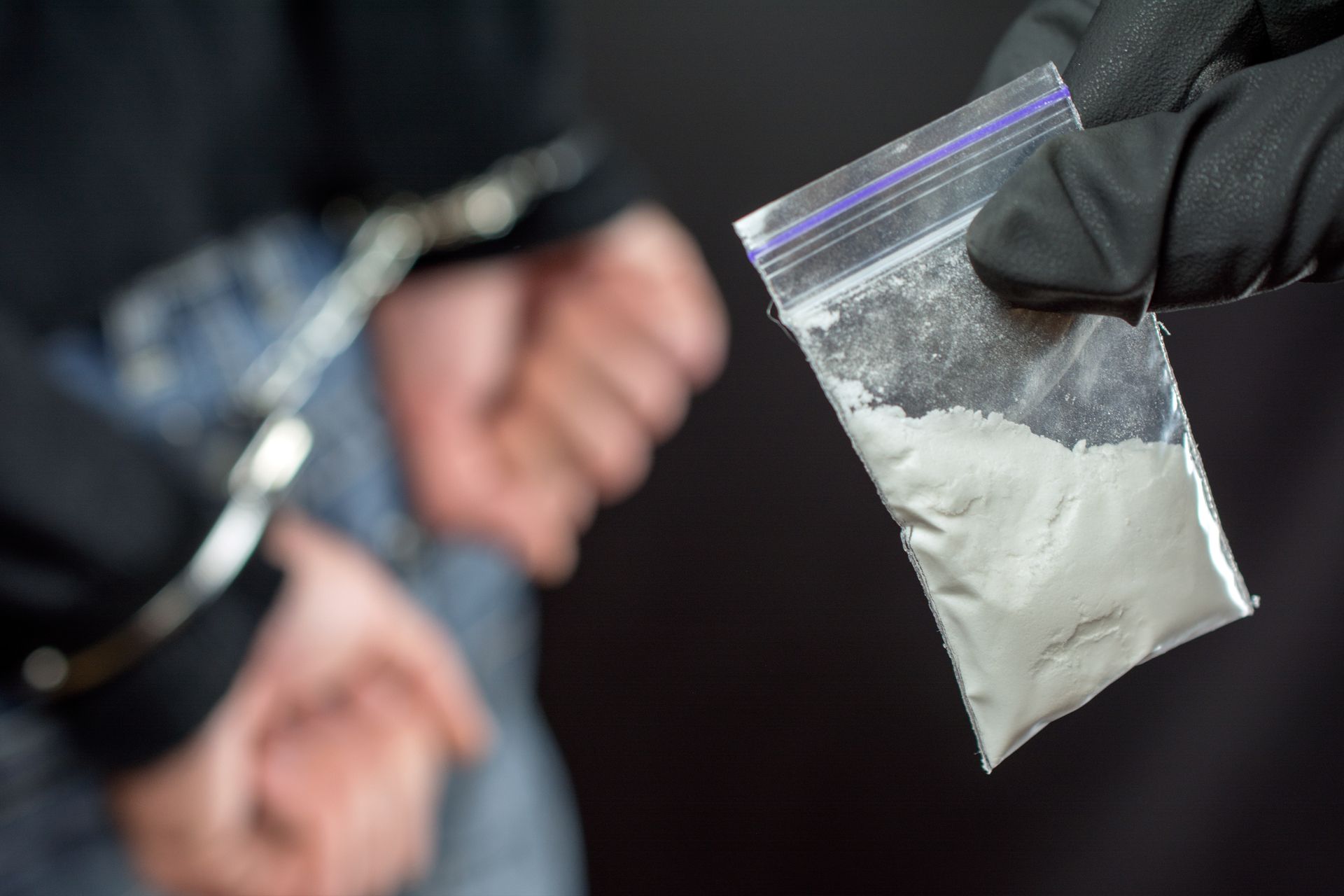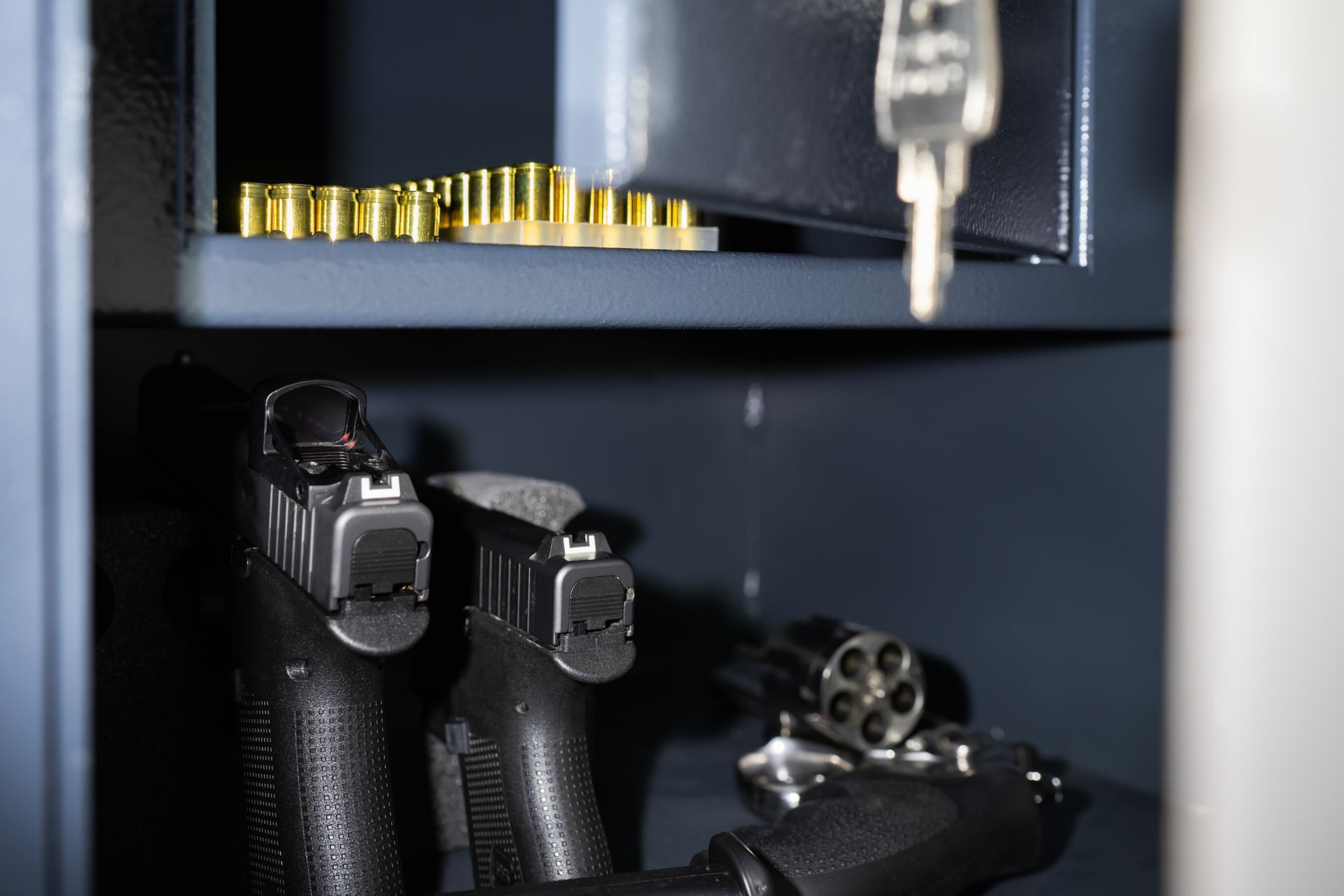Exploring Common Drug Defense Strategies: Challenging Prosecution, Finding Mistakes and Defending Your Rights

When it comes to criminal defense, drug charges present unique challenges. Whether facing accusations of possession, trafficking or manufacturing, individuals accused of drug offenses rely on criminal defense attorneys to mount effective defenses. These defenses often involve challenging the prosecution's case, identifying law enforcement errors and scrutinizing evidence.
Drug Offenses and Legal Defenses
Drug offenses encompass a wide range of charges, from simple possession to more serious allegations like distribution or trafficking. The severity of penalties varies based on factors such as the type and quantity of drugs involved, prior criminal history and whether the offense occurred near a school or involved minors.
Common Drug Offenses
- Possession: Having illegal drugs for personal use.
- Distribution: Selling, delivering or providing drugs to others.
- Manufacturing: Producing or cultivating illegal substances.
- Trafficking: Transporting large quantities of drugs across state or international borders.
Legal Defenses
- Unlawful Search and Seizure: Determining whether law enforcement followed proper procedures and had probable cause.
- Lack of Possession: Challenging whether the accused had control or knowledge of the drugs.
- Entrapment: Arguing that law enforcement induced the defendant to commit a crime they wouldn't have otherwise committed.
- Violation of Rights: Asserting violations of constitutional rights during the arrest, interrogation or evidence gathering.
- Insufficient Evidence: Contesting the prosecution's ability to prove guilt beyond a reasonable doubt.
- Challenging Witness Credibility: Contesting the reliability and truthfulness of witness testimony that is critical to the prosecution's case.
- Medical Necessity: Providing evidence that drug possession was for medical purposes under state laws.
- Crime Lab Errors: Questioning the reliability or accuracy of drug testing methods or lab results.
Challenging the Prosecution's Case
Unlawful Search and Seizure: One of the most common defenses in drug cases involves challenging the legality of the search and seizure that led to the discovery of drugs. The Fourth Amendment protects individuals from unreasonable searches and seizures. If law enforcement conducts a search without a warrant or probable cause, any evidence obtained may be deemed inadmissible in court.
Example Scenario:
John was pulled over for a broken taillight. During the traffic stop, the officer conducted a search of John's vehicle without a warrant or probable cause and found drugs in the glove compartment. John's attorney could argue that the drugs should be suppressed because the search violated his Fourth Amendment rights.
Lack of Possession: Defense attorneys may challenge whether their client had actual possession or control over the drugs. This defense is particularly effective in cases where drugs are found in a shared vehicle or property where multiple individuals have access.
Example Scenario:
Sarah was at a party where drugs were found in the living room. Despite being present, Sarah's attorney argues she did not have control or knowledge of the drugs' presence, as she was unaware they were in the house.
Entrapment: Entrapment occurs when law enforcement induces someone to commit a crime they otherwise would not have committed. To successfully claim entrapment, the defendant must demonstrate that the idea to commit the crime originated with law enforcement, and they were not predisposed to committing the offense.
Example Scenario:
Mark was repeatedly pressured by an undercover officer to sell drugs, despite initially refusing. Eventually, Mark agreed, feeling coerced by the officer's persistence. His attorney argues entrapment as Mark would not have committed the offense without the officer's inducement.
Finding Law Enforcement Mistakes: Ensuring the integrity of evidence is crucial in drug cases, and attorneys meticulously review the chain of custody, documenting every individual who handled the evidence to determine whether there was an opportunity for tampering.
Law enforcement also must follow strict rules pertaining to their interrogation techniques. If they are found to have wrongfully coerced a confession through intimidation, threats or promises of leniency, the confession may be challenged as involuntary and inadmissible.
Example Scenario:
Tom was interrogated without being informed of his Miranda rights and was coerced into confessing to drug possession. His attorney argues that the confession should be suppressed due to Miranda violations and coercion.
Scrutinizing Evidence Presented
Testing Accuracy and Reliability
Defense attorneys may challenge the accuracy and reliability of drug tests conducted by crime laboratories. Factors such as improper handling of samples, contamination or outdated testing methods can raise doubts about the validity of test results.
Example Scenario: Michael's attorney obtains an independent analysis of the seized drugs, which contradicts the crime lab's findings. The defense argues that the prosecution's evidence is unreliable and should be discounted.
Expert Witness Testimony
Defense attorneys often call upon expert witnesses, such as toxicologists or pharmacologists, to provide testimony challenging the prosecution's evidence. These experts can testify about the effects of drugs, potential causes of false positives in testing and other scientific factors relevant to the case.
Example Scenario: In Maria's trial for drug possession, her attorney calls a pharmacologist to testify that the amount of drugs found was consistent with personal use rather than distribution, casting doubt on the prosecution's charges.
Protecting Rights and Pursuing Justice
Effective drug defense strategies involve meticulous analysis, strategic planning and a deep knowledge of both the law and the circumstances surrounding the case. By challenging the prosecution's case, identifying law enforcement errors and scrutinizing evidence, defense attorneys play a crucial role in safeguarding their clients' rights and pursuing just outcomes in drug-related legal proceedings.
Experienced Drug Crime and Assault Criminal Defense Attorney in Phoenix
If you or someone you know is facing drug, assault or other criminal charges in the Greater Phoenix area, seeking legal counsel early can make a significant difference in the outcome of the case.
Michael Alarid III is ready to provide the guidance and advocacy you need.
Contact us today for a free consultation or give us a call at (602) 818-3110.
Practice Areas
RECENT NEWS
PRACTICE AREAS
All Rights Reserved | The Law Office of Michael Alarid III
Built by REV77



